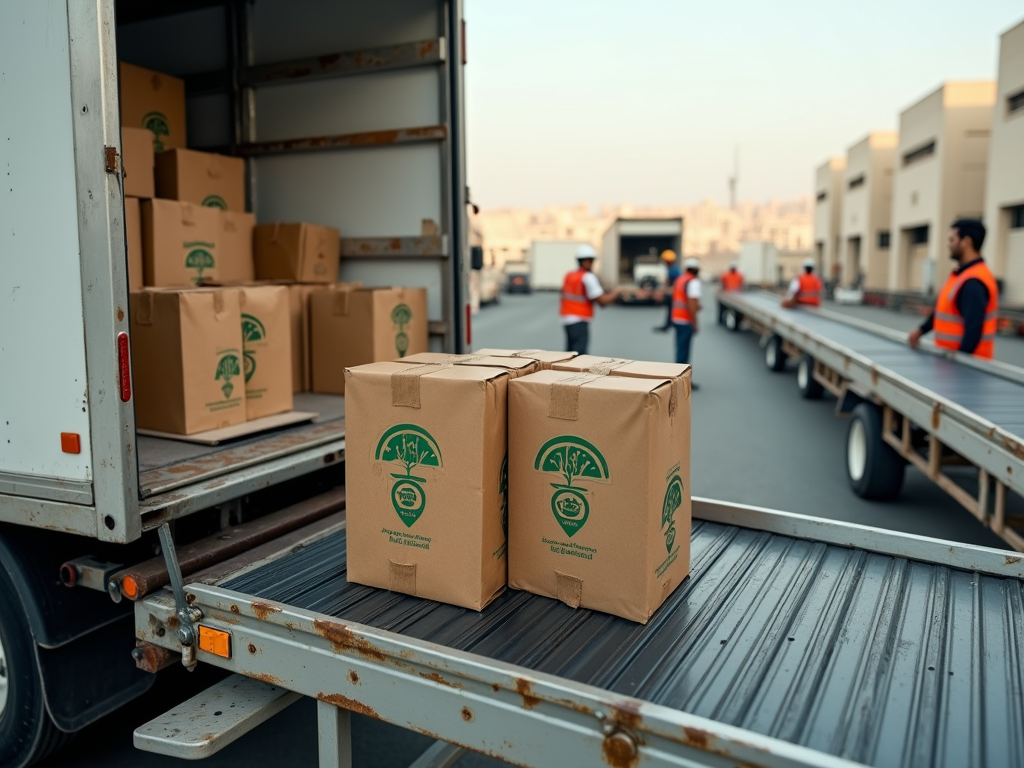Dubai’s food packaging industry is ripe with opportunities for investors looking to capitalize on its strategic location, booming economy, and evolving consumer preferences. As the region’s population continues to grow and the demand for packaged foods surges, businesses in this sector are likely to reap substantial rewards. This article explores the dynamics of the food packaging industry in Dubai, the factors fueling its growth, and the best paths for investment.
Understanding the Dubai Food Packaging Market

Dubai serves as a pivotal hub for food trade and distribution in the Middle East, offering significant advantages for the food packaging industry. The emirate’s advanced logistics and infrastructure ensure efficient supply chains, while its favorable business climate draws both local and international companies. This market encompasses a wide range of packaging solutions, including flexible packaging, rigid packaging, and environmentally friendly options, catering to diverse sectors such as retail and food services.
Additionally, Dubai’s strategic initiatives toward sustainability have led to an increased emphasis on green packaging solutions. Investors can find innovative opportunities in developing biodegradable materials and recyclable products. As consumers grow more environmentally conscious, businesses that embrace sustainable practices will likely capture a larger market share. Therefore, understanding the market’s structure and its evolving preferences is crucial for potential investors.
Key Factors Driving Growth in the Food Packaging Sector

Several factors contribute to the robust growth of Dubai’s food packaging industry, making it an attractive investment locale. Here are some of the primary drivers:
- Population Growth: Dubai’s population continues to expand, increasing the demand for packaged foods.
- Tourism Boom: As a major tourist destination, the hospitality sector fuels demand for packaged food products.
- Trade Agreements: Strategic trade agreements enhance the flow of goods, making Dubai a vital logistics hub.
- Technological Advancements: Innovations in packaging technology improve efficiency, sustainability, and consumer appeal.
- Health Trends: A growing awareness of health and wellness drives demand for safe and nutritious packaging solutions.
By recognizing these dynamics, investors can make informed decisions about which niche markets or packaging technologies to explore further.
Investment Strategies in Dubai’s Food Packaging Industry
Investors looking to make headway in Dubai’s food packaging sector can consider several strategies to maximize their return on investment. Here are some viable approaches:
- **Establishing Manufacturing Facilities:** Investing in local production not only reduces costs but also aligns with governmental incentives for local businesses.
- **Partnerships with Local Distributors:** Collaborating with established distributors can facilitate smoother entry into the market and enhance logistics capabilities.
- **Engaging in Research and Development:** Innovation is key to staying competitive; allocating resources towards R&D can lead to new packaging technologies that resonate with consumers.
- **Investing in Sustainability:** Focus on eco-friendly packaging solutions to meet the rising demand for sustainable products while complying with regulations.
- **Diversifying Product Offerings:** Explore diverse packaging solutions catering to several food sectors, including ready-to-eat meals, frozen foods, and specialty dietary items.
These strategies can help investors establish a competitive edge in a thriving industry.
While the prospects for investment in Dubai’s food packaging industry are promising, it is essential to acknowledge the challenges that may arise:
- Regulatory Compliance: Navigating local regulations and compliance standards can be complex for new entrants.
- Market Competition: The growing interest in this sector has led to increased competition, necessitating differentiation.
- Economic Fluctuations: Global economic conditions can impact consumer spending and therefore the demand for packaged goods.
- Resource Availability: Depending on imported materials may expose businesses to supply chain vulnerabilities.
- Consumer Preferences: Rapid shifts in consumer tastes and preferences require adaptability and responsiveness.
Careful strategic planning can help mitigate these challenges, allowing investors to thrive in a competitive environment.
Conclusion
Dubai’s food packaging industry presents lucrative investment opportunities fueled by market growth, technological advancements, and an increasing focus on sustainability. Investors willing to understand the market dynamics, tailor their approaches strategically, and navigate the inherent challenges can make significant returns. As consumer preferences continue to evolve, being flexible and innovative is paramount for success in this burgeoning sector.
Frequently Asked Questions
1. What are the main packaging types used in Dubai’s food industry?
The main packaging types include flexible packaging, rigid packaging, vacuum packaging, and eco-friendly packaging designed to meet various storage and distribution needs.
2. How can newcomers enter the food packaging industry in Dubai?
Newcomers can enter by conducting market research, partnering with local distributors, or investing in manufacturing capabilities to leverage existing networks.
3. Are there incentives for investing in sustainable packaging solutions in Dubai?
Yes, the UAE government supports sustainable initiatives with various incentives and funding opportunities, encouraging businesses to adopt eco-friendly practices.
4. What are the growth projections for the food packaging sector in the coming years?
Market research indicates a strong growth trajectory for the food packaging sector in Dubai, driven by increasing demand in retail and foodservice sectors.
5. How do regulatory standards affect investments in Dubai’s food packaging industry?
Regulatory standards influence investment by setting requirements for safety, sustainability, and quality, and businesses must comply to operate effectively in the market.


